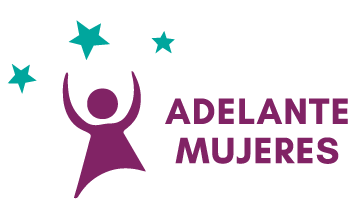A Day in the Life of a Community Health Worker: Celerina’s Story
At Adelante Mujeres, our Community Health Workers are the heartbeat of community care. They are the ones who listen deeply, show up consistently, and walk alongside individuals facing real, everyday challenges.
This is a look into the lived experience of one of them: Celerina Rojas Mota.
Celerina supports 50 participants through our Prescription Program, in collaboration with Virginia García Memorial Health Center. Her work includes leading nutrition and exercise classes, taking blood pressure, and providing consistent, personalized support to people living with chronic conditions like diabetes. But her care goes far beyond that.
“Some people don’t have food, or a wheelchair, or money for rent or electricity. I don’t just focus on the six participants I follow more closely, I support all 50. And if they call me for help, I try to find a solution or connect them with another promotora.”
Her day begins with preparing for classes, making phone calls, and responding to a steady flow of requests. The phone rings constantly, not just from participants, but from others in the community who know her. Some need diapers, others need help with bus passes or housing resources. She takes it one step at a time, always prioritizing emergencies, without losing sight of the bigger picture.
“Sometimes it feels like everything comes at once. I have to remind myself: I can’t do it all at the same time. So I focus on what’s most urgent that day.”
Each group class includes cooking together, light exercise, and a focus on a health topic like diabetes. With four different groups, all 50 participants take part each month. They are also invited to help build a community garden at Virginia García, a space to reconnect with food, nature, and one another.
If a participant stops responding, Celerina and her supervisor Lucía don’t ignore it. They make a home visit to check in. Their approach is deeply personal and rooted in trust.
“We build trust by showing up. They start to see us as family. They greet me with blessings and that’s how I feel, blessed to serve them.”
Celerina carefully documents every call, visit, and case. This helps her stay organized and allows other team members to support participants if needed.
While her work is full of love and connection, it also brings challenges. Her biggest one right now: language.
“English is still a barrier for me. But it’s my priority, to keep learning, so I can help even more people, including those who don’t speak Spanish.”
One story that stays close to her heart is that of a single mother caring for a son with a severe disability, while also grieving the loss of another son in Mexico. Celerina and her team offer support with food, emotional care, and presence.
“We give her spaces of peace. Even when she doesn’t call us, we reach out. That way, she knows someone is there.”
When asked what skills are most important in her work, Celerina doesn’t hesitate:
“You have to listen. People need to feel heard. Once they talk, they feel lighter. You also need empathy, kindness, and patience. You have to really care.”
She is especially passionate about supporting older participants who cannot read or write. She and her team create educational materials using images and symbols to make learning more accessible for everyone.
And she doesn’t do it alone. Her colleague Cristina Urenda helps divide the workload, making sure every participant gets the care and attention they deserve.
“Together, we make it work.”
This year, Celerina received the Richard Silliman Legacy Award from the American Heart Association, a special recognition for her leadership in promoting heart health, food security, and culturally rooted community care.
“Our program is small, but it has everything. That’s why we got the award. We built it with love for the community.”
Her impact goes far beyond numbers or reports.
It lives in every person she checks on.
In every moment of care.
In every hug from a participant who now feels hope.
When asked what advice she’d give someone starting this path, her voice softens, but her words are strong:
“Don’t give up. There’s always a path. There’s always a way forward.”


